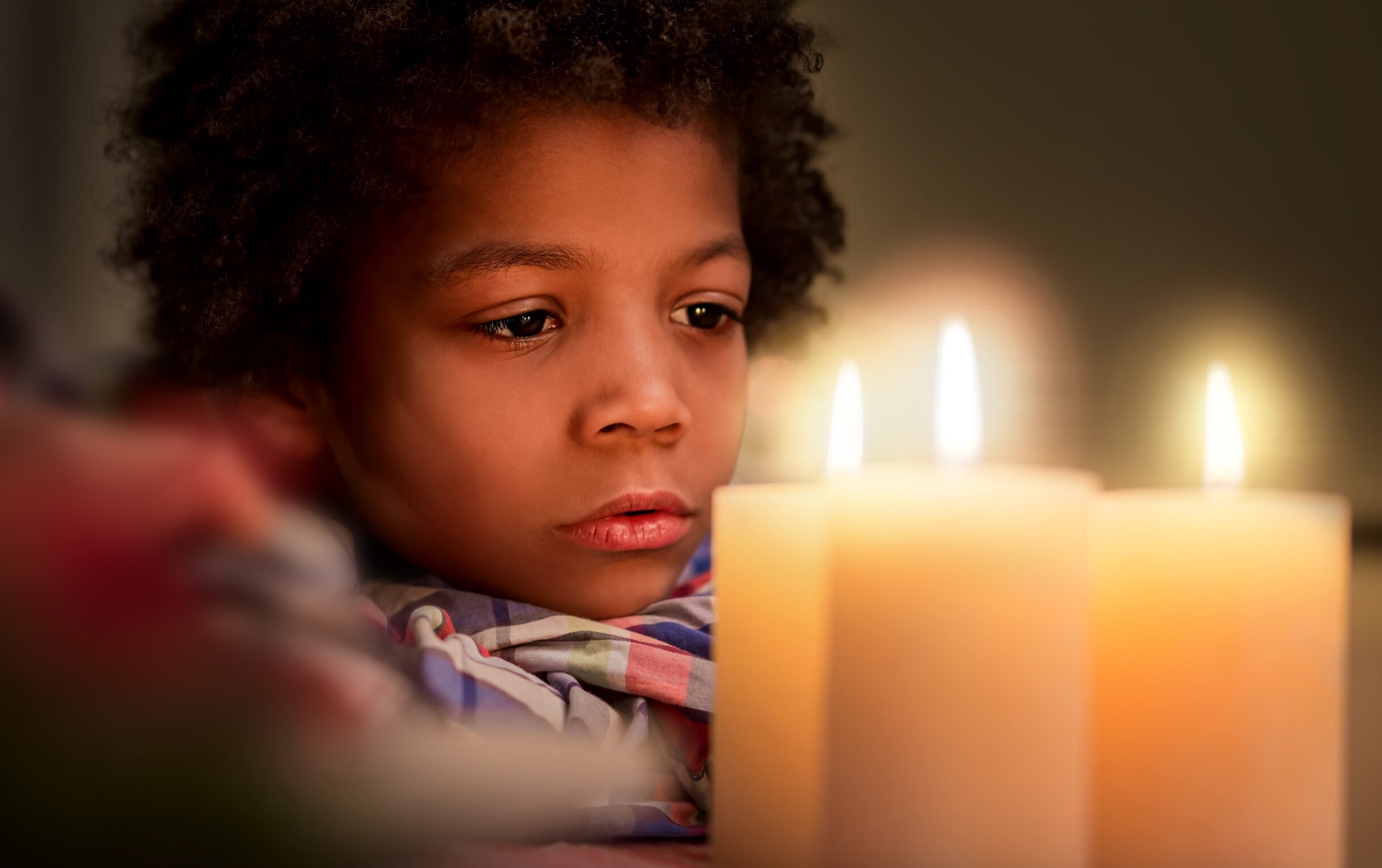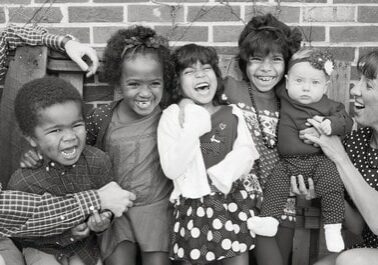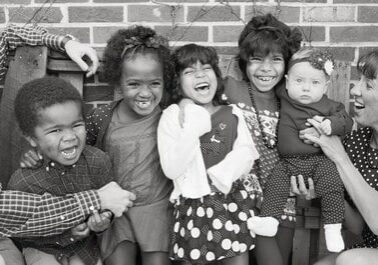Grief and Loss: 4 Ways to Support Adoptive and Foster Kiddos Around the Holidays by Jenn Hook
Most of us have Christmas traditions. My family has quite a few. For example, we have a tradition for getting our Christmas tree. We trudge out into the snow and search high and low, waiting for the angelic light that would inevitably descend from the heavens to reveal our family Christmas tree. We blast the Canadian Tenors Christmas album on the way home as we drink our lukewarm apple cider (because you can’t keep anything warm during the winter in Canada). It was a magical time and one that holds many fond memories for me.
A Different Experience of Christmas
One thing I realized while working with kids in foster care is that their experience of the Christmas season was often quite different from mine. For many of my kiddos, the Christmas season was full of mixed feelings. Although Christmas is often about celebration, joy, time with family, and hope, for my kids the holiday season also brought about grief, sadness, and loss. The holiday was another reminder that they would wake up on Christmas morning and not be home with their biological parents. Another reminder that they were separated from their biological siblings. Another reminder that things in their lives had drastically changed, and might not ever be the same again.
The Christmas Wish Tree
Every year just after Thanksgiving, I would decorate my counseling office for Christmas. I’d tape green pieces of poster board piecemealed together to resemble a Christmas tree. I’d stream Christmas lights across the paper in an attempt to spice it up a little. Some of my kiddos thought it was an artistic masterpiece, while others got a good chuckle from the effort.
It was the “Christmas wish” tree and it held some of the deepest wishes, longings, and desires of my kiddos’ hearts:
“I wish I could live with my parents again.”
“I wish I could see my grandparents and aunts/uncles.”
“I wish my mom would get sober.”
“I wish I knew who my dad was.”
“I wish I could live with my siblings.”
“I wish I could play with my friends from my other school.”
Holding Mixed Feelings
For my kids, it was so hard to hold such polarizing feelings. I remember a little boy shared with me that Christmas was hard for him that year because everyone around him was so excited, but he felt sad that he wasn’t home with his mom. He felt like he had to be happy. How can you feel happy and excited about Christmas and also feel a deep sadness at the same time?
So, we’d write our Christmas wishes and hang them on the tree. We’d hold on to them desperately. We’d cry about them. We’d laugh and relish new traditions and give ourselves full permission to feel the depths of our feelings when the sadness would creep back in.
4 Ways to Support Adoptive and Foster Kids at the Holidays
How can we help our children around the holidays? Here are 4 suggestions:
1. Sit with them in their pain. For some of our kids, they might feel sadness and disappointment around Christmas. Some kids may never have celebrated Christmas because their family did not have the means to. New Christmas traditions and celebrations can sometimes be overwhelming. As they enter your family celebrations, they might be reminded of what they’ve lost or what they never had. I would encourage you to pause with your foster kids and honor their feelings and experiences. Talk with them about their feelings and experience, and let them know they can share their grief and pain with you.
2. Honor their feelings. It can be hard to see children we love hurting and feeling sad around the holidays. But sometimes we rush through their pain to offer hope and remind them of all the fun things they can look forward to. We might have good intentions (i.e., to make them feel better), but what our children really need is permission to feel their feelings. Mirroring and validating their feelings is an important way to love and care for your children this holiday season. A simple “I would feel that way too,” or “I sometimes feel sad around Christmas too” can be connecting and validating. One activity I use to help children process the variety of feelings they may be experiencing over Christmas is to “color their heart.” We draw a big heart on a white piece of paper and I ask them to pick 4 feelings they have in their heart right now and then I pick one (sometimes kiddos will just pick the “happy” type feelings and this allows me to incorporate feelings such as sad, disappointed, etc.). I then get them to pick different colors for each feeling. We color our hearts in relation to how much of each feeling we have until the heart is completely colored. We then share about why we are feeling each of those feelings in our heart. It’s a great conversation starter and one that can open up conversation about any pain or sadness they are feeling around the holidays.
3. Integrate their favorite Christmas traditions with your own. For some of our kids in foster care, waking up on Christmas morning is a reminder of the Christmas traditions they’ve lost because they are not with their birth families. Talk with your kids. Ask them about what they’ve done in the past to celebrate Christmas. Invite them to share stories and traditions. It can be healing for kids to know that you can hold their stories, their feelings, and their Christmas wishes. See if you can incorporate any of their favorite Christmas traditions with your own.
4. Honor their birth families. The Christmas season would pull my kids in many emotional directions. Imagine creating an ornament at school for your parent. Do you give it to your foster parents or your biological parents? Who do you buy Christmas presents for? I remember some of my kids also feeling sad because they knew their biological parent(s) would be alone on Christmas. All of these things can weigh heavily on our kids. So, honor their birth families as much as possible. Engage your kids in creating ornaments for them, or making or buying a Christmas present for them. Depending on the relationship you have with your child’s birth family or the State requirements regarding contact or visitation, you might be able to arrange a video/phone call with them on Christmas or invite them over for Christmas dinner?
Discussion
How are your children impacted by adoption or foster care doing this Christmas? What have you found to be helpful for your kiddos around the holidays?
About the Author
Jenn Ranter Hook, MA, is the Founder and Executive Director of Replanted – a ministry that helps empower the church to support adoptive and foster families by providing emotional, tangible, and informational support. She received her Master’s Degree in Clinical Psychology from Wheaton College. She previously worked as a trauma therapist for children and adolescents in foster care. She speaks frequently on topics related to adoption and foster care support, mental health, and trauma. She is the author of Replanted: Faith-based support for foster and adoptive families and lives in Dallas, TX with her husband Josh.
Follow them on Facebook & Instagram, or sign up for our newsletter!








